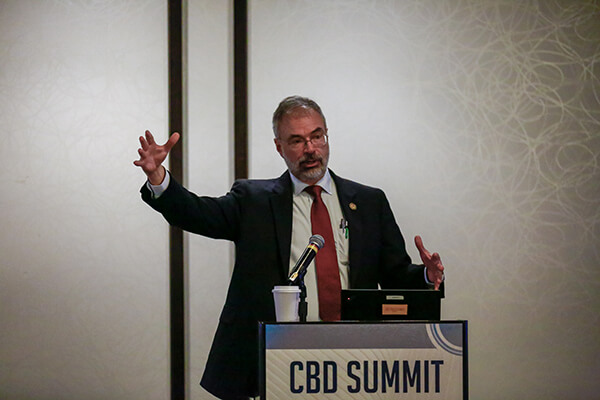The use of cannabis for medical purposes isn’t the only health care issue that is politicized and polarizing. But as consumer demand grows, the consequences of not providing incentives to encourage more rigorous scientific research of cannabis as a medical therapy are significant…and the clock is ticking.
As of January 2020, 33 states have passed medical marijuana legislation and these laws allow consumers with ailments ranging from anxiety to chronic pain to obtain cannabis for medicinal use upon receipt of a recommendation from a physician.1 These interventions may not be ethically, medically, or financially benign for patients or their families. Physicians are making recommendations, sometimes outside their therapeutic area of expertise without randomized, placebo-controlled clinical research and FDA oversight that is required of any other prescription medication.
As Maryland congressman and licensed anesthesiologist, Andrew Harris MD noted in a speech during the first annual CBD Policy Summit in Washington, DC on January 15, “Legislators are dictating what doctors can prescribe medical marijuana for (but) we need proof to claim safety. We have a structure in place with the FDA, why aren’t we using it?”

The same day Dr. Harris made these remarks, the U.S. House of Representatives Subcommittee on Health of the Energy and Commerce Committee met to discuss various bills offered by both Democrats and Republicans that propose policy changes related to cannabis law. The hearing included testimony from the Drug Enforcement Agency (DEA), the Food and Drug Administration (FDA), and the National Institute on Drug Abuse (NIDA) all citing the challenges of the current environment and a need to protect and promote the health of Americans.
While the discussion ranged from rescheduling or descheduling marijuana to providing a safe harbor for use by patients and veterans, it also focused on the need to improve and streamline the cannabis research processes.1 The reality is that drug development is a costly endeavor, but the lack of investment in research has led to a proliferation of unapproved cannabidiol (CBD) products and states legalizing cannabis for medicinal purposes without the rigor of FDA approval.
While the need is urgent, there are many barriers to developing robust clinical data that could support cannabis-derived medical therapies, including:
-
Most cannabis is still considered a Schedule I controlled substance under the Controlled Substances Act.
-
High costs, lengthy timelines and burdens are associated with clinical development.
-
Proliferation of competing, unapproved products, which have little or no development costs due to not following standards the FDA requires for approved medicines.
-
Diminished intellectual property protections for botanically derived materials inherent in cannabis plant-derived medicines.
While current legislative proposals are a start, the federal government must advance policies that encourage the development of FDA-approved cannabis-derived medicines, and the FDA must ensure cannabis-derived products are not touted as medically beneficial without the rigor of scientific research and review required of any other medicine. More cannabis research, and especially high-quality, controlled clinical trials is crucial. Without rigorous clinical trials, there will continue to be incomplete information about how cannabis-derived therapies can both help and harm patients. A comprehensive federal framework that incentivizes the development of new, FDA-approved, cannabis-derived therapies based on high-quality clinical research will clearly distinguish medicines from mass-market products.
References
1Opening Statement of Chairman Frank Pallone, Jr. Energy and Commerce Committee: Subcommittee on Health January 15, 2020 Hearing on “Cannabis Policies for the New Decade.” Available at https://energycommerce.house.gov/sites/democrats.energycommerce.house.gov/files/documents/2020.1.15.PALLONE.Cannabis%20Leg%20Hearing.HE_.pdf. Accessed March 23, 2020.

